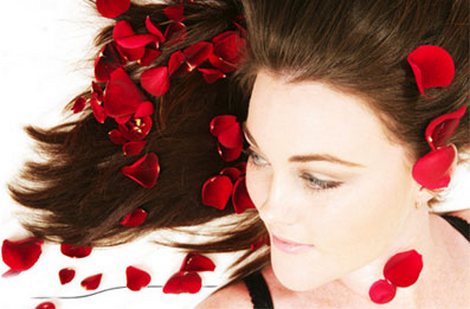How to Protect the Health of Hair – Nine Tips from the Pros
1. Make sure you eat a nourishing, nutrient-rich diet that can support the health of your skin and hair. Avoid frequent dieting and veganism. Eat a lot of foods that contain a complete set of amino-acids, especially meat, eggs, fish, and dairy products. Do not go on low-fat diets, since naturally-occurring animal fats and cholesterol play an important role in supporting all human cells and tissues, including those of the hair shafts and follicles.
2. Shampoo you hair and scalp regularly, but do not overdo. If your hair is oily, wash it twice a week. If you have dry hair, shampoo it only once a week. Make sure to wash your scalp thoroughly, not only hair, to remove skin particles and sebum. Give preference to mild herbal shampoos and avoid harsh soaps and other commercial products loaded with synthetic chemicals
3. As you get older, you hair slowly loses its protective oil and becomes more fragile and brittle. At this point, take steps to additionally nourish your scalp with a weekly massage with olive or coconut oil, and apply natural protein-containing conditioners after shampooing.
4. Minimize your exposure to damaging hair procedures, such as dyeing or chemical strengthening.
5. Use home-made, natural hair remedies to strengthen your hair, treat dandruff, or manage hair loss. Herbal masks, massage oils, rinses and lotions without chemical additives or other synthetic ingredients are your best and most effective hair-care options.
6. If your hair has been damaged by chemical treatments, rejuvenate it with nourishing masks containing emu oil and aloe vera.
7. Protect your hair from direct sun exposure, heat, and excessive moisture. In the summer, always wear a hat when you are outside in the sun, which will secure your hair against unnecessary ultraviolet damage. Manufacturers of some new hairsprays claim that their products include sunscreen that prevents sun-induced breakdown of hair proteins and protects chemical hair dyes from fast fading. However, you should use synthetic hair products in strict moderation. Applying natural protective measures is always better for your hair and general health.
8. If you hair is colour-treated, use natural conditioners that can replace the protective lipid layer of hair oil. Regular massages with nourishing lubricants, especially coconut and emu oils, work more effectively than even the most advanced laboratory-produced conditioners.
9. If natural treatments have failed to restore the health of your hair, try a revolutionary silicone technology that provides advanced hair conditioning – smoothing the surface of individual hairs, repairing split ends, reducing combing abrasion, preserving the natural hair colour, and preventing hair loss.
Christiana Roberts
Posted on May 23, 2008
Filed Under Hair Care
Comments
Leave a Reply

